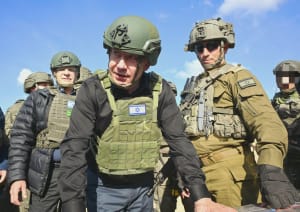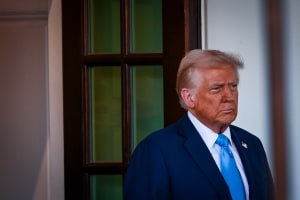Fatal blow to nuclear talks – Iran removes surveillance cameras from nuclear sites
IAEA chief says Iran intends to remove dozens of cameras installed under the JCPOA, describes negotiations as “very tense”

Iran intends to remove dozens of surveillance cameras that were installed in nuclear sites under the 2015 nuclear deal, according to the head of the United Nation’s nuclear watchdog agency.
Among such sites that would be difficult to monitor are the underground Natanz enrichment facility, as well as the nuclear site in Isfahan.
Rafael Grossi, director-general of the International Atomic Energy Agency (IAEA), said this move by Iran puts nuclear negotiations to revive the JCPOA in a “very tense” situation. He made the remarks during a news conference in Vienna, standing next to an example of the surveillance cameras in question.
Grossi also told CNN that if Iran curtails the IAEA’s access to its facilities, it will makes it “technically impossible” to have a new nuclear agreement in place, since inspectors will not be able to track uranium enrichment advances.
While 27 cameras will be removed, more than 40 will remain, in accordance with a previous agreement that was signed decades ago between Iran and the IAEA as part of the Nuclear Non-Proliferation Treaty.
Nevertheless, Grossi warned that in three to four weeks, the IAEA would be unable to maintain a “continuity of knowledge” about Iran’s nuclear program.
“We are in a very tense situation with the negotiations over the [nuclear deal] at a low ebb,” Grossi added. “Now we are adding this to the picture; as you can see it’s not a very nice one.”
On Wednesday, Iran announced that it shut off two surveillance devices the IAEA uses to monitor enrichment at Natanz. Iran made the decision as a pre-emptive measure ahead of a vote of the IAEA Board of Governors that resulted in a condemnation of Tehran.
The United States, along with Germany, France and the United Kingdom, submitted the draft resolution following a report which claimed that traces of nuclear material were found at three undeclared Iranian sites.
Iran deemed the report as “unfair” and “unbalanced,” yet failed to provide answers to IAEA inspectors.
U.S. Secretary of State, Antony J. Blinken, said on Thursday that “Iran must cooperate with the IAEA and provide technically credible information in response to the IAEA’s questions, which is the only way to remove these safeguards issues from the Board’s agenda.”
“The United States remains committed to a mutual return to full implementation of the JCPOA,” Blinken said. He added that the U.S. is prepared to conclude a deal on the basis of the understandings that were negotiated with European allies in Vienna over many months.
“Such a deal has been available since March, but we can only conclude negotiations and implement it if Iran drops its additional demands that are extraneous to the JCPOA,” the secretary said. “Unfortunately, Iran’s initial response to the Board’s action has not been to address the lack of cooperation and transparency... but instead to threaten further nuclear provocations and further reductions of transparency.”
According to Blinken, the only outcome of such a path will be a “deepening nuclear crisis” and further “economic and political isolation” for Iran.

Tal Heinrich is a senior correspondent for both ALL ISRAEL NEWS and ALL ARAB NEWS. She is currently based in New York City. Tal also provides reports and analysis for Israeli Hebrew media Channel 14 News.














